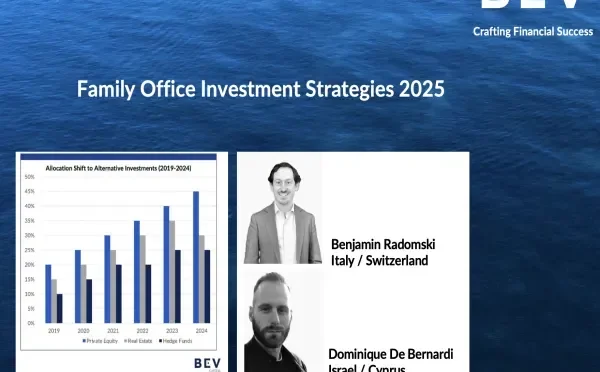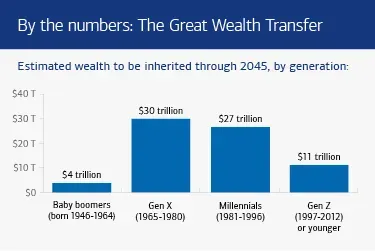Wealth building strategies are essential tools that anyone can leverage to achieve financial independence and security. Many Americans aspire to build wealth, with over half believing they will surpass their parents’ financial status, as revealed in a recent LendingTree survey. Despite this optimism, a significant number of individuals are not utilizing effective strategies such as investing for retirement, creating an emergency savings fund, or getting financial advisor tips. By understanding the importance of financial planning and diversifying investments—like participation in stock market investing—individuals can enhance their wealth-building journey. Committing to these strategies now can set the foundation for long-term prosperity and peace of mind.
When it comes to accumulating wealth, employing a smart approach to your finances is crucial. Many people are on the lookout for effective methods to increase their wealth, but it’s important to recognize that strategies for building financial resources extend beyond mere savings. Concepts like prudent financial management, future retirement planning, and establishing a safety net are all fundamental parts of a comprehensive wealth strategy. Seeking guidance from experts or financial advisors can open up avenues for effective stock investments and help pave the way for a more secure financial future. Ultimately, understanding and employing these alternative strategies can lead to not just wealth, but also financial stability in the long run.
Wealth Building Strategies: A Comprehensive Overview
Building wealth is not just about having a high income; it’s about utilizing effective wealth-building strategies that anyone can adopt, regardless of their financial background. Homeownership is one of these strategies and remains popular among Americans, with 36% of individuals recognizing it as a key to financial growth. Owning a home provides not only a place to live but also offers potential appreciation in property value over time, making it a tangible asset in one’s financial portfolio.
In addition to homeownership, saving for retirement early is crucial. A significant 33% of Americans prioritize this strategy, leveraging the power of compound interest. By investing in retirement accounts like a 401(k), individuals can benefit from pre-tax contributions which lowers their taxable income and helps build a nest egg for the future. As wealth-building strategies vary, combining different approaches optimally aligns with personal financial goals.
The Importance of Financial Planning for Wealth Accumulation
Effective financial planning is essential for successful wealth accumulation. It involves evaluating personal financial circumstances, setting clear financial goals, and creating a roadmap to achieve them. A financial advisor can provide tailored financial planning insights, helping individuals navigate the complexities of investing for retirement, which is a crucial component of growing wealth over time. This strategic approach ensures that every dollar is working toward building a financially secure future.
Moreover, financial planning encompasses not only investments but also budgeting for daily expenses and savings. Establishing an emergency savings fund—typically recommended to cover three to six months of living expenses—serves as a safety net against unforeseen circumstances. This proactive strategy reduces the need to rely on credit and aids in maintaining financial stability while pursuing long-term wealth.
Emergency Savings Fund: A Pillar of Financial Stability
An emergency savings fund is a vital tool in financial planning, allowing individuals to manage unexpected expenses without derailing their long-term financial goals. This fund acts as a buffer during economic difficulties, providing peace of mind that necessary resources are available in case of job loss, medical emergencies, or urgent repairs. Financial experts recommend that individuals save at least three to six months’ worth of expenses in a high-yield savings account to maximize the efficiency of their emergency funds.
To effectively build an emergency fund, setting up automatic transfers from checking to savings accounts can ensure consistent savings behavior. Regular contributions, even small amounts, can lead to significant savings over time. This foundational step not only prevents individuals from accruing debt in times of crisis but also allows them to focus on additional wealth-building strategies like investing in the stock market or increasing retirement contributions.
Investing in the Stock Market: A Key Wealth-Building Strategy
Investing in the stock market has long been recognized as one of the most powerful wealth-building strategies available. Approximately 24% of Americans have taken this step, understanding that historically, stock market investments can yield higher returns compared to traditional savings accounts. By purchasing shares in companies, investors can benefit from capital appreciation and dividends, which further enhance their overall wealth.
However, stock market investing requires a careful approach. It is essential for investors to educate themselves about market trends, risk management, and diversification to maximize returns while minimizing potential losses. Working with a financial advisor can provide valuable insights into stock selection and portfolio management, ensuring that investment strategies align with individual risk tolerance and financial objectives.
The Role of Financial Advisors in Wealth Building
Working with a financial advisor can be a transformative step for individuals aiming to build wealth. Only 17% of Americans currently consult financial advisors, but those who do often benefit from personalized financial guidance that aligns with their specific goals. Financial advisors leverage their expertise to help clients navigate complex financial landscapes, making informed decisions regarding investments and retirement planning.
Moreover, a financial advisor can help in implementing effective wealth-building strategies tailored to individual circumstances. They can provide insight into potential investments, risk assessment, and diversification strategies that an individual may not consider independently. In a world where financial markets constantly evolve, having an expert by your side can make a significant difference in achieving long-term wealth goals.
Combining Strategies for Optimal Wealth Growth
To effectively build wealth, it’s beneficial to combine multiple wealth-building strategies. Many financial experts recommend a multi-faceted approach, including homeownership, saving for retirement, and investing in the stock market. This diversified strategy not only spreads risk but also increases potential returns, allowing individuals to capitalize on different market conditions and opportunities.
By synergizing these strategies, individuals can create a robust financial plan that adapts to their evolving needs. For example, while saving for a down payment on a house, one can simultaneously contribute to a retirement account, taking advantage of compound interest, all while maintaining a healthy emergency fund. This holistic approach ensures that wealth growth is both sustainable and resilient to unforeseen challenges.
Long-term Mindset: A Foundation for Wealth Building
Adopting a long-term mindset is crucial in the journey of wealth building. Those who think ahead and plan for the future often reap greater financial rewards. Individuals are encouraged to start saving and investing early, even when contributions are small. The concept of “time in the market” outweighs “timing the market”— the longer money stays invested, the more it can grow.
Moreover, with a long-term perspective, investors can better withstand market volatility without making impulsive decisions. They can ride out downturns while remaining focused on their ultimate financial goals. This mindset not only fosters a disciplined approach to investing but also encourages ongoing education about personal finance, further enhancing the likelihood of achieving wealth.
Understanding Financial Literacy for Better Decision-Making
Financial literacy is foundational for effective wealth-building. It entails understanding essential concepts like budgeting, saving, investing, and the various financial products available in the market. A well-informed individual can make better decisions when exploring wealth-building strategies, optimizing their financial outcomes.
Furthermore, improving financial literacy can empower individuals to work more effectively with financial advisors. By understanding the basics of investing for retirement and creating an emergency fund, individuals can engage in more productive conversations with advisors, asking informed questions and making collaborative decisions that bolster their financial growth.
Common Pitfalls to Avoid in Wealth Building
While many Americans have aspirations to build wealth, several common pitfalls can impede their progress. One major issue is neglecting to save or invest due to procrastination. Failing to start early reduces an individual’s ability to take advantage of compound interest, which is crucial for wealth accumulation over time.
Additionally, individuals may fall into the trap of focusing on short-term gains instead of long-term strategies. This often leads to risky investments or chasing market trends without a solid plan. By understanding these pitfalls and committing to a comprehensive wealth-building strategy, individuals can significantly enhance their chances of achieving financial success.
Frequently Asked Questions
What are the most effective wealth building strategies that include financial planning?
Effective wealth building strategies that incorporate financial planning include starting retirement savings early, creating a comprehensive budget, and building an emergency savings fund. By focusing on financial planning, individuals can allocate resources efficiently, ensuring they contribute to retirement and save for unforeseen expenses.
How can I use investing for retirement as a wealth building strategy?
Investing for retirement is a key wealth building strategy. Contributing to employer-sponsored plans like a 401(k) allows your money to grow through compound interest. Even small contributions can make a significant impact over time, especially when matched by employers. Start as early as possible to maximize your growth potential.
What is the role of an emergency savings fund in wealth building strategies?
An emergency savings fund is essential in wealth building strategies because it provides a financial safety net. Having three to six months’ worth of expenses saved can protect you from debt when unexpected costs arise, allowing you to focus on long-term investments and retirement savings without financial worry.
What tips do financial advisors offer for developing effective wealth building strategies?
Financial advisor tips for developing effective wealth building strategies include diversifying investments, starting retirement contributions early, and maintaining an emergency fund. Advisors recommend reviewing your financial plan regularly to adapt your strategies as your financial situation evolves.
How can stock market investing enhance my wealth building strategies?
Stock market investing can significantly enhance wealth building strategies by offering higher potential returns compared to traditional savings accounts. By investing in stocks, you can benefit from compound growth over time, especially if you start early and maintain a diversified portfolio.
Why should I consider working with a financial advisor for my wealth building strategies?
Working with a financial advisor can be beneficial for your wealth building strategies because they provide personalized guidance, help optimize your portfolio, and offer insights into effective financial planning. Their expertise can help you navigate complex financial situations and identify the best strategies for your specific goals.
| Strategy | Percentage of Americans Using This Strategy |
|---|---|
| Owning a home | 36% |
| Saving for retirement | 33% |
| Putting money in an online savings account | 29% |
| Investing in the stock market | 24% |
| Working with a financial advisor | 17% |
Summary
Wealth building strategies are essential for Americans aspiring to achieve financial independence. Many individuals recognize the importance of planning and investing, as evidenced by the common tactics embraced, including homeownership and retirement savings. However, a significant number are not utilizing these strategies effectively. Engaging in wealth-building strategies early, such as starting retirement contributions and consulting a financial professional, can provide a clearer path to financial stability. By covering foundational financial bases like debt management and emergency funds first, individuals can create robust strategies for wealth accumulation. Overall, a combination of methods tailored to personal circumstances will contribute significantly to achieving long-term financial goals.








